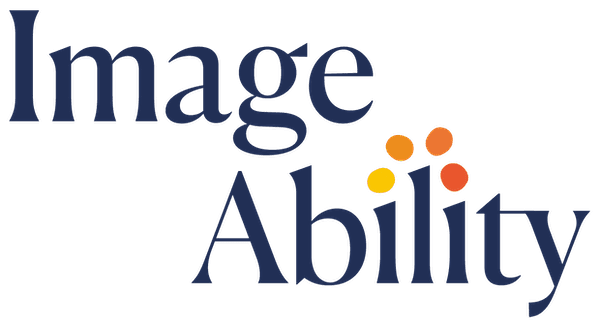A Taste for Leadership
In my mother tongue, there is a saying that ‘one doesn’t discuss taste’ – but I beg to differ as developing taste is something many women aspire to; some openly crave, and others are struggling with.
I have had many conversations with leaders in various organisations who are scratching their heads about how to bring women back into full-time work. Notwithstanding the delicate time of raising young children, why is coming back proving so problematic for many – especially with the current economic challenges?
This takes me to the subject of taste – and the evidence that taste is a strong indicator of leadership potential &/or attainment. So, I propose encouraging the development of taste as a skill – and as a lever – for female leadership development.
Let me explain: I define ‘taste’ as an appreciation or enjoyment of a personal preference. In my book, the taste is about having a healthy, mature attitude and relationship with work, colleagues, your profession and the community, your body, age, and overall image. The intentional development of taste goes hand-in-hand with self-respect and is inseparable from our social standing: this applies to all human beings, irrespective of gender, industry or seniority.
Leaders are expected not to manifest inappropriate behaviour – although it may well happen that they find themselves compelled to communicate exaggeratedly for the sake of attention – and, occasionally, to divert attention; there’s no need to give examples here as they are everywhere! But taste goes hand-in-hand with credibility – which is why it is such a valuable passport to leadership.

In what we do at Image Ability, I meet women who are encouraged and sponsored to go for leadership training. Immersion in the right educational programme helps them raise awareness, build on their strengths, and create the ROI their organisations need – which is why they are sent in the first place.
I also meet women who might not have been lucky enough to be born into an environment of good taste, nor are they likely to be sent for suitable leadership training, but they are aware that, to progress, they need to work at developing and cultivating what is perceived to be good taste.
The truth is that those who have been brought up in a culture of ‘good enough’, as opposed to ‘the best one can be’, are the fastest learners as they realise that they need to take matters of taste seriously. For those who aspire to positions of authentic leadership, developing a personal taste is a must, not a nice one to have.
So, what does one require?
At Image Ability, we advocate seven essential ingredients in image, taste and leadership.
- Develop your personal disciplines.
Designing your own project to develop taste is not about splurging on cosmetic surgery, expensive covers, and a me-me-me attitude. Instead, it is about creating history, so we help you look back and inside so that you can see into the future.
Acquiring good taste results from living in various ways in various stages of your life: it could be for food, a new culture, a new language, or a new place – and more. When you continue to explore these (or other) areas, you add an extra dimension to your ability to relate to the world; they enrich your life – and, hence, your taste.
Interestingly, and surprisingly for many women, fashion is not the thing to think about when developing taste – but your image and style are where the result of your history and taste are most visible to others.
Taste is about new experiences and new happenings with which you interact . . . intentionally. This immersion transforms such experiences into educational value for yourself. In other words, they are the first step on the leadership training ladder.
With every new experience, you take the next step up the ladder and enrich your history- your taste will evolve in the process.
Taste and history grow in tandem: they do not exist separately but help each other filter out what is inappropriate or undesirable. So, for example, if you are an innovator by nature, and your history of creating more value goes hand-in-hand with your appreciation of a ‘trendy’ image, simply because this is what suits your personality and outlook on life, you will cherish and nurture it – and invest in it accordingly. But dressing up as a ‘trendy’ person doesn’t make you an innovator!
If you are a person with a history of steady growth with more minor changes and a solid substance career, being current rather than trendy in your appearance is enough to convey and maintain your credibility.
So, as in any realm of life, leaders are different – but one thing they share is discipline. For women leaders, this manifests itself and is highly visible regarding their taste.
- Be mindful of media and friends
It may sound like a platitude or unrealistic, but a woman leader observes, filters and does ‘her thing’ without allowing media or friends to influence her taste. Taste is unique to you, so the only thing that matters is developing taste and appreciating how it can help you achieve your personal life goals.
- Always aspire to do better
Curation is the critical action for all you have as your tools – i.e. your appearance, communication and behaviour. While there is so much talk about ‘best practice approaches’, recipes, ideal body image and the like, there is no finite goal here: just better, not ideal or perfection, as those are a matter of personal or societal interpretation. Make sure your taste serves you; it is to nurture, educate and empower you to be better.
- Appreciate other people’s taste
Leaders work with diverse teams and often across multiple cultures – this is true for those who run their small start-ups or are part of more significant multinationals. Your EQ (Emotional Quotient) and IQ (Intelligence Quotient) come together when you connect your intelligence with taste choices that are different from your inherent choices. Connection, curiosity and learning are yet other vital leadership skills.
- Continuously question your personal taste.
Women are wired differently, so it is highly likely that you ask yourself, “What do I like about this experience, this team, this outfit or this interaction?”- all at the same time . . . instinctively.
Make these learnings work for you: what gives you intellectual reward, visual and emotional pleasure?
Taste creates an emotional connection, so reflect on what moved you in an experience, a team, an outfit or an interaction. You may be a conformist, eccentric, classic, perfectionist or sophisticated, and therefore, react to stimuli in a particular or unique way. Self-awareness is pure gold for your growth.
- Make taste your superpower.
Taste is exciting and brings respect from others. Never dull, taste brings life to a part of you both personally and professionally . . . it may actually be craving for acknowledgement. It gives you an extra lever to problem-solve whether a role is good for you . . . or otherwise.
Think of how you might curate the way you dress and present yourself to bring character to your life and work – and, of course, the other way around. Suddenly, you will know when you are well put together because it feels good, and you will do well in your chosen role.
- Focus on developing your taste.
You know when you have arrived, for example, from under-developed taste to developing taste: your choices will become more exciting and, possibly, riskier. So, play and keep taking it to the next level, one step at a time.
‘Arrival’ means assimilating the disciplines above: you can now support a higher-risk taste because you have (and believe in) yourself. This is what leadership is all about – keep at it. It gets more tasteful with every new experience, team, interaction and project you undertake. Finally, the world is watching and complimenting you on what you do!
So, I’ll pose a question to my senior colleagues who lament the difficulty of bringing women of all ages back into the workplace:
Has the time come to recognise that the traditional role of HR-driven recruitment is, perhaps, a bit outdated?
Should we focus on a broader range of soft (personal) skills to help those prized recruits transition back into the world of work? Should we be offering some aspects of support that were absent pre-pandemic, as opposed to financial recruitment incentives that fail to tap into the range of more personalised experiences that I keep being told are so challenging to reach in this new world? Things like image and taste really do matter for women (and men) to help with confidence and commitment when transitioning back into the workplace . . . and, indeed, for those who haven’t had the early-life benefits of either a supportive home environment or work experience that has equipped them with the right social skills (and taste!) for the challenges facing the new generation of transformational leaders that we need.
Visit our Image Ability store and learn more about how we can help.
